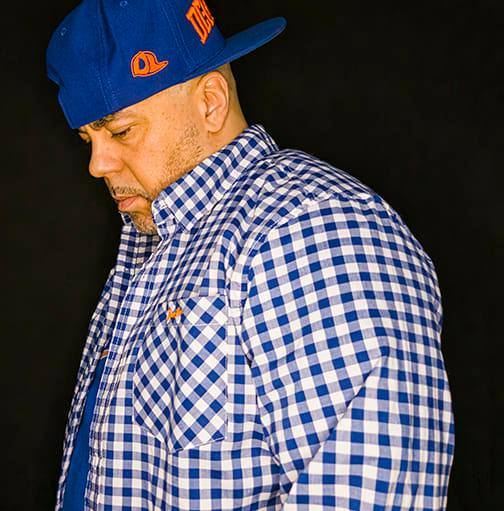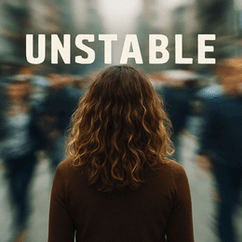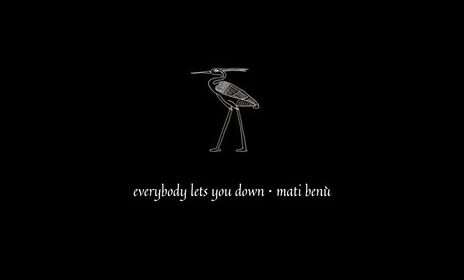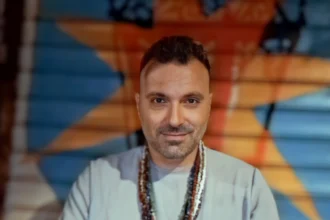Admonish Music has had an extraordinary career that spans decades, working with industry legends like Tymaxx, G.O.D. Father of The Infamous MOBB, and Jam Master Jay. A seasoned music producer, entrepreneur, and creative, he’s also contributed to acclaimed projects like the Modern Day Miracles documentary and Darryl Strawberry’s Mets Hall of Fame induction feature. After stepping away from music to focus on family businesses and reflect on the industry’s evolving landscape, Admonish Music has made a powerful return with Hip Therapy, an introspective and emotionally charged project that blends healing, growth, and timeless storytelling.
In this candid interview, Admonish Music opens up about his journey away from the spotlight, the inspiration behind his return, and the personal experiences that shaped his new music. From heartfelt tributes to his family to exploring deeper themes of vulnerability and resilience, this interview offers a glimpse into the mind of a creator dedicated to crafting meaningful art.
Join us as we dive into the making of Hip Therapy, the lessons learned from scoring award-winning documentaries, and his vision for the next phase of his career.
You’ve had a remarkable career in the music industry, working with influential artists like Tymaxx, G.O.D. Father of The Infamous MOBB, and Jam Master Jay. What inspired your decision to step away from music for a while and focus on family businesses?
Thank you, I wasn’t enjoying the music anymore. The business of music changed, the sound and the energy in music changed to a space where I wasn’t comfortable anymore. My wife and I started a clothing brand and a consulting business and I put my creative energy into them. Last year a good friend of mine, Rob Davis, asked me for beats. I went into an entire spew about how I wasn’t there and how the industry changed. Lol, then the next day I sent him a track and I’ve been back in it ever since.
During your time away from the industry, you had the chance to study the current musical landscape. How has your perspective on music evolved, and how did that influence your decision to return with Hip Therapy?
Diving into other businesses allowed me to study business patterns and trends. I’m not a trendy person, so I’ve learned to be consistent in my business philosophy and intent. I brought that perspective into music. I’m not following a trend in my production or song ideas. I’m building a foundation for my sound and growing with a like minded audience. Then rinse and repeat. I’m gonna do “My” music. However, I know there’s an audience that likes what I’m doing, so I’m going to stick to that.
Hip Therapy explores themes of mental and physical healing, as well as growth. Can you tell us more about how your personal journey shaped the creation of this project?
I recently had hip replacement surgery due to arthritis from an old football injury. While sitting in my living room during the recovery I felt vulnerable. I’m a very independent person. My family was helping me and enormously supportive. However, I felt weak not being able to just get up and get myself a glass of water. I was personally very uncomfortable in that space. Thankfully I had some great music to listen to like Killer Mike’s album “Michael”, Common and Pete Rock’s “The Auditorium Vol. 1” but when Joell Ortiz and The Heatmakerz album “W.A.R” dropped my pen started flowing. I wrote the album in about a week, another week to record. I produced all the music so the beats were already made. I was selecting music that had the same emotional feel I was going through.
Tracks like “Baby” and “Jet Set” showcase a more personal side of your music. How did your family, particularly your children and wife, inspire some of the songs on Hip Therapy?
I make emotional music. Whether it’s to dance, drive, cry, laugh or enjoy life too. My goal is to evoke emotion with my music. As far as a writer, I’m not a fantasy writer. I write better off of experience and feelings. I’ve been working on “Baby” for about 10 years. The idea was there to tell my children how much I care for them and how proud of them I am. It was until I did the beat that all the words started to pour out. “Jet Set” is a song about my wife and I celebrating life together. We’ve been through ups and downs financially, with employment, running our business however, our foundation is our relationship. It’s always been strong. So now it’s time to celebrate, let’s Jet Set around the world together.
With songs like “Play No Games,” “Hipnosis,” and “Specialist,” your lyrics dive into deeper themes. What message do you hope to convey through these tracks, and how do they reflect your current state of mind?
“Play No Games” is basically me starting the album off saying, “I’m not here to play games”, I’m a tell my truths and be who I am, regardless.
“Hipnosis” is a play on the word hypnotize and hip therapy. It’s letting others know my pen game is not weak. I still write with a passion for the art of writing, a focus of a lyricist and the ferocity of a battle. That’s how I learned to write. I wrote my truths and I still do.
“Specialist” starts off with me saying “I’m a grown man, what I look like being caught up in a jam”, I’m not here to do childish things, I’m not here to be immature. My actions are precise, strategic and experienced. I’m a specialist therefore my actions are thought out.
Besides telling my emotions on “Hip Therapy” I also wanted to display my penmanship. The art of weaving double and triple entendres through a verse is still my favorite pastime.
Hip Therapy is a mix of introspection and energy.
How did you balance personal reflection with the desire to create music that connects with your audience?
Everyone goes through different emotions throughout their day. Everyone feels good or bad about themselves, career or current state of life. It’s not something that is evaded in Hip Hop. It may not be spoken about regularly, however it’s still there. I chose to speak my truths, I chose to be me. It’s needed. It’s wanted. Machismo is on overdrive all the time. But you will burn out and push the right people in your life away by being overly machismo. It’s time to admit you need help, you are not ok. Everything and everyone needs a break. There is nothing weak about asking for help. It’s actually a sign of strength to ask for help. I think my audience is insync with me on this thought.
You’ve had the opportunity to score award-winning documentaries like Modern Day Miracles and Darryl Strawberry’s Mets Hall of Fame Induction. How has your work in film and television influenced your approach to music production?
Working on these documentaries taught me how to zone in on the emotion of the scene, the feeling. I understood it wasn’t just about a dope loop. It’s about connecting with your listener. Not all of them, just 1. Because if you can connect your music with that person’s emotion at that moment. You’ll be able to connect with everyone feeling that way at that time in their life.
Working on film and TV taught me to connect with my audience through sonics, vibration and frequency.
What role does collaboration play in your creative process? Are there any artists you’d like to work with on future projects?
There’s a certain point in my creative process where an artist style or voice may start to come out. Sometimes it’s a melody or sometimes it’s the drums. When I get there a “ah ha” moment happens. Nas a sound dope on this, Raekwon a kill this, I need this to get to Common. Those thoughts kick in or sometimes the words just start flowing.
I love working with other artists. I try to push their comfort zone. I try to challenge them to go further lyrically or conceptually. Let’s push the boundaries of music. Let’s create something timeless.
I’d really love to work with Nas, Raekwon, Rakim, Joell Ortiz, Killer Mike, Terminology, J. Cole, Benny The Butcher many more lol
You’ve expressed a desire to expand your catalog across various industries, including music, film, TV, video games, and advertising. What are some of your long-term goals, and how do you envision the next phase of your career?
Long term goals are to have a catalog of music being sync licensed through films, TV, advertisements and more. That’s perpetuity residuals right there. Grow my business vertically through direct to consumer marketing and make sure we are set up to control our assets. Opposed to allowing someone else to determine our value.
Hip Therapy reflects a fresh chapter in your career. What can fans expect from you in the future, both in terms of music and beyond?
More of me being me. My music will reflect my space at that moment. Introspective, clever and Hip Hop. I’m always thinking of new ways to engage with my audience. New innovative ways to go directly to them, less middlemen more direct. My wife and I will continue to grow our business ventures, see new places and always give back.
With the world constantly evolving, how do you stay motivated and inspired to create new music that remains true to your artistic vision while resonating with listeners?
Life is inspiring, it’s ups and downs, it’s like a heartbeat. It pulls and pumps. So I will continue to put my emotions and feelings on paper (or Samsung notes lol). I’m human and there’s 7 plus billion humans on earth. There will always be someone who will connect with me at that moment.
Lastly, Hip Therapy marks your return to the music scene. What message do you want to leave with your listeners as you embark on this new journey?
Hip Therapy is me telling my listeners it’s ok to be vulnerable. It means your human. It means you are in touch with who you are and that’s a great thing. A powerful thing to know. Don’t be afraid to ask for help or seek help. Check-in yourself, access your mental and physical health and get the help that’s needed if so. But most importantly know that you are worthy and you deserve great things.















Thank you for the great interview. I am greatly appreciative.